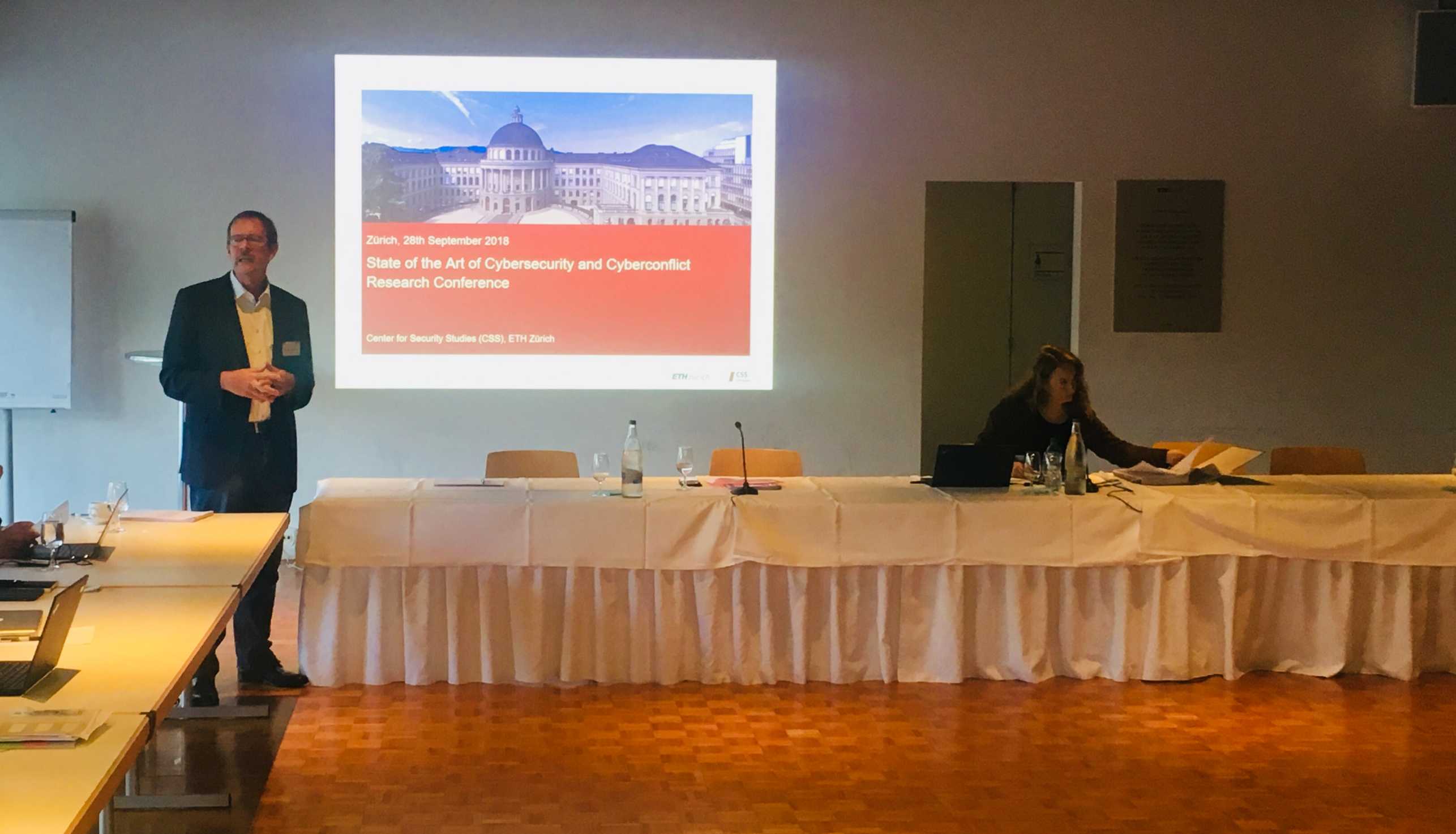Cybersecurity and Cyberconflict: State of the Art Research Conference
Organized by the Center for Security Studies, ETH Zurich, Switzerland
Date: 27th-29th September 2018
Place: Zürich, Switzerland - Hotel Zürichberg/ETH Zürich
Cybersecurity has become a topic of great importance in the international security community. The 2018 State of the Art Research Conference in Cybersecurity and Cyberconflict by the CSS brought together dedicated cybersecurity researchers with backgrounds from political science and related fields to exchange findings from their research. Over two days, Prof. Dr. Andreas Wenger and Dr. Myriam Dunn Cavelty led the mapping of the state of the art in this field of research and the identification of future research avenues. The select group of specialized researchers engaged in eleven insightful panels covering the topics “Power”, “Offensive Cyber Operations”, “Deterrence”, “Attribution”, “Norms”, “Strategy & Policy”, “Practices”, “Cyber-violence”, “Expertise”, “Small States” and the “Future of Cyber”.

Panels and participants
Dr. Brandon Valeriano, Donald Bren Chair of Armed Politics at the Marine Corps University, discussed the utility of offensive cyber operations. Dr. Amir Lupovici, associate professor in the School of Political Science, Government and International Affairs at Tel Aviv University, focused on the social construction of Israeli cyber deterrence strategy, to which Dr. Jan Martin Lemnitzer, Assistant Professor at the Centre for War Studies at the University of Southern Denmark, added the juxtaposition of deterrence and regulations.
On the topic of norms, Lilly Muller, Research Fellow at the Norwegian Institute of International Affairs, gave a presentation on how cybersecurity is created and Alex Hardy, Royal Leverhulme funded PhD Research Student at Royal Holloway, provided a critical approach to everyday cyber securities and cyber (in)security with a focus on Estonia.
In the concluding panel, which provided an outlook on the future of cybersecurity, Dr. Jon Lindsay, Assistant Professor at the Munk School of Global Affairs & Public Policy and the Department of Political Science at the University of Toronto, critically looked at the perception of quantum computing and presented his findings on why it will not destabilize international security. The well-established scholars Prof. Dr. Johan Eriksson, Professor of Political Science at Södertörn University, and Dr. Giampiero Giacomello, Associate Professor of Political Science with the Department of Political and Social Sciences, University of Bologna, enriched the conference with their outlook on the importance of the future (and already existing) expansion of cyberspace into outer space.
The findings of this conference will be published in an edited volume.